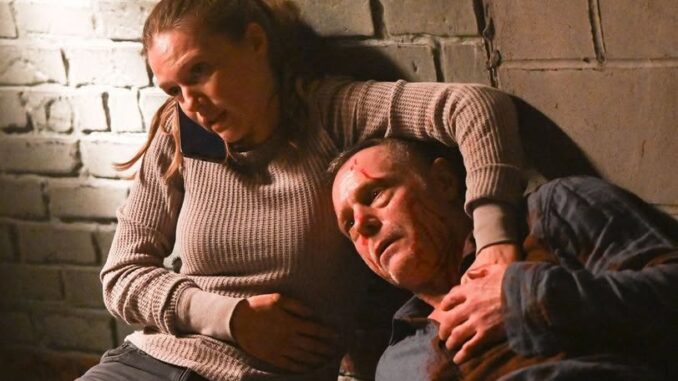
In a show built on blurred morals and the constant tug-of-war between justice and law, no character walks the tightrope more precariously than Hank Voight. For over a decade, Chicago P.D. has showcased his unique brand of street justice—equal parts loyalty and intimidation. But there are rare moments when even the most loyal fans ask: has Voight gone too far?
One such episode stands out in chilling clarity, not because of a brutal takedown or explosive shootout, but because it exposed the darkest side of a man who’s built his career on protecting the innocent by sometimes hurting the guilty.
The Setup: A Crime Too Personal
The episode begins with the kind of case that immediately signals danger—not just for the city, but for Voight’s emotional stability. A young woman is found murdered, and early evidence points to someone with ties to Voight’s past. The second Voight walks onto the crime scene, viewers can sense the shift: this is no longer just a case. This is personal.
Detectives in Intelligence start their investigation by the book, but the deeper they dig, the more it becomes clear that traditional methods won’t deliver the justice Voight demands. As tensions rise and suspects emerge, Voight’s patience cracks. He begins operating outside the law in ways that even his closest allies start to question.
A Familiar Pattern… But With Higher Stakes
Fans of the show are no strangers to Voight’s “back alley” methods. He’s been known to bend rules, manipulate evidence, and pressure confessions in ways that raise eyebrows. But in this episode, those methods take on a darker edge.
He kidnaps a suspect—not an unfamiliar tactic in his playbook—but what follows is different. This time, Voight doesn’t just threaten violence. He seems almost ready to act on it. The camera lingers as he contemplates doing the unthinkable, and the audience is left in an uncomfortable limbo: do we want him to follow through?
The beauty—and brilliance—of this writing lies in how it forces viewers into an ethical corner. We understand why Voight is furious. The suspect is likely guilty, the system will probably fail again, and the victim deserved better. But that sympathy clashes with our understanding of law and morality. Voight is a cop, not a vigilante. Or is he both?
The Team Pushes Back
For once, the members of Intelligence aren’t silent observers. Trudy Platt drops subtle warnings. Kim Burgess expresses discomfort. Even Ruzek, who’s often willing to back Voight’s gut instincts, pulls back. Their resistance isn’t overt mutiny, but it’s clear: the squad isn’t willing to cross this line with him.
The emotional climax comes when Hailey Upton confronts Voight—perhaps the only person left who can still challenge him. She doesn’t yell. She doesn’t plead. She just asks him a question: “If you do this, who are you saving?” It’s a moment that echoes long after the screen fades to black. Because the answer, Voight realizes, isn’t the victim. It’s himself. He’s trying to save the part of him that still believes the ends justify the means.
A Moment of Restraint, A Lifetime of Damage
In the final moments, Voight doesn’t follow through. He walks away. But the damage is done—not just to the suspect, not just to his badge, but to the fragile trust between him and his team. The episode ends not with applause, but with silence. A silence that speaks louder than any gunshot or chase scene.
Voight returns to his office alone. There’s no music, no fanfare. Just the weight of a man who once again stepped to the edge of the cliff—and might’ve leaned just a little too far over.
Why It Matters
What makes this episode so powerful isn’t just that Voight almost crosses a line. It’s that we almost want him to. Chicago P.D. masterfully manipulates our sense of justice, forcing us to question what we believe about heroes, villains, and the blurry mess in between.
Voight is complicated. He’s not clean. He’s not a role model. But he’s real—in the rawest, most vulnerable sense of the word. This episode dares to ask: what happens when the person we trust to protect us becomes the thing we fear?
